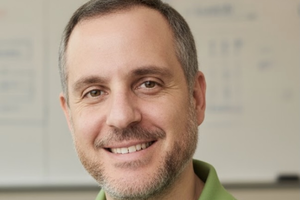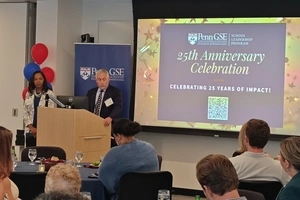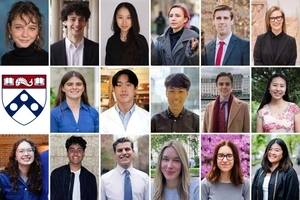by Lini S. Kadaba
How can an educator take an idea for a groundbreaking curriculum and make it a reality that enhances hundreds or even thousands of classrooms? How can a global business leader create an online platform that helps educational institutions teach more effectively? Penn GSE’s Education Entrepreneurship program, the first of its kind in the world, was launched in 2014 to address some of education’s greatest challenges. During the thirteen-month, executive-format program, students continue their lives as working professionals while earning an M.S.Ed., completing a thesis by building an impactful, sustainable, and scalable education venture.

“To date, the program’s alumni have created nearly 150 education enterprises, launched new schools and programs, worked on ed tech startups, built next-gen learning curricula, and provided leadership on entrepreneurial activities in schools, businesses, governments, and communities,” says Dr. Jenny Zapf, the program’s director and a senior fellow at Penn GSE. Since its inception the program has doubled in size and produced almost 150 alumni working in twenty-five countries. Here, four graduates share how it provided them with the knowledge and tools to innovate at all levels of education, both within and beyond the classroom, in the United States and abroad.
Improving College Access in Vietnam
For Hieu Dinh Le, GED’18, a dream was born when he asked himself why he had managed to live the kind of professional life that remained out of reach for most of his high school classmates in Vietnam. “The key turning point is the education I received in the United States. That completely changed my life,” says Le, who studied economics at the University of California, Los Angeles on a Vietnam government scholarship. He went on to become a consultant at Deloitte and ING, as well as an education entrepreneur with two successful startups.
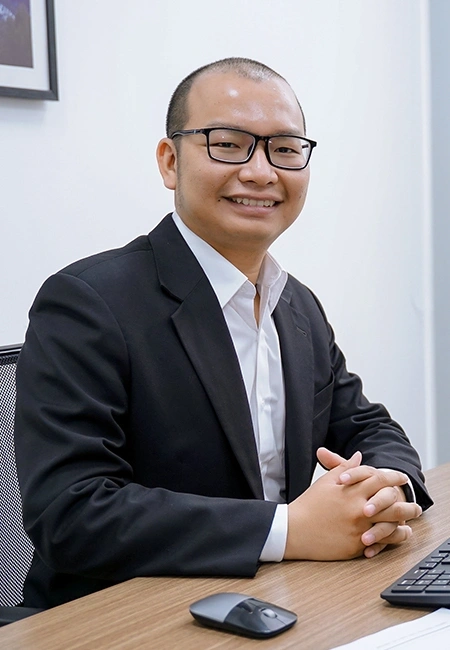
Now, as founding team member of Vietnam’s first world-class university, he wants to bring quality higher education to more Vietnamese through VinUniversity (VinUni), a nonprofit, private college in Hanoi expected to welcome its first class in 2020.
Vietnam graduates about one million high schoolers each year, Le says, but most cannot afford a university education—particularly those from rural areas, where more than 60 percent of the country’s population lives. “Going to college is still a privilege,” he says, noting that even those who get there struggle to find good jobs because of the poor educational quality.
Enter VinUni, the 2016 philanthropic brainchild of the Vietnamese conglomerate Vingroup, which is partnering with Cornell University to establish business and engineering colleges and with Penn to create medical and nursing colleges. The rigorous, English-language college aims to bring an Ivy League standard to Vietnamese higher education, Le says, and will offer scholarships to most students, eliminating cost constraints.
VinUni also will focus heavily on entrepreneurship. “We want to create someone who actually can bring about change, lead the workforce, create jobs,” says Le, who was named to Forbes Vietnam’s 30 Under 30 list in 2016 and has been director of VinUni’s marketing, public relations, and admissions since January.
“I learned so much about education, so much about running my company and doing entrepreneurship the right way.”
Earlier in his career, Le founded and then sold Everest Education, a tech-based tutoring service, and used the proceeds to start G.A.P. Institute, a career development hub meant to raise the global competitiveness of Vietnamese college students. Le says he put his knowledge from Penn GSE’s Education Entrepreneurship program into practice at the institute, which grew so rapidly that the Vingroup considered acquiring it. Instead, he was invited to join VinUni’s leadership team while continuing as CEO at G.A.P.
“At Penn, I learned so much about education, so much about running my company and doing entrepreneurship the right way,” he says. Now, Le uses his skills from Penn GSE to pitch VinUni and its holistic admissions approach to attract potential applicants, to seek professors in the mold of Penn GSE faculty, and to help design a campus. “I strongly believe in the potential of Vietnamese students,” he says, “because I was one of them.”
Building Skills for Parenting Children with Autism
During eight years of homeschooling a son who has autism, Andrea Pollack, C’83, L’87, GED’17, figured out which strategies work and which do not— and most importantly, what might help other parents who face similar challenges.
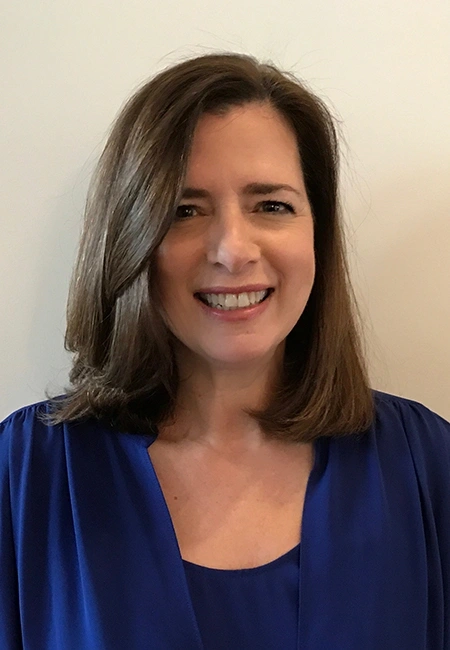
“There are so many different therapies for kids,” says Pollack, who left a nineteen-year law career to focus on her son’s education. “At their core, there are common elements that are really related to good parenting. I wanted to help parents learn those skills without having to read a thousand books and figure it out for themselves.”
Pollack sought to establish a nonprofit—but first needed expertise in launching a new venture in the education space. She determined that the Education Entrepreneurship program at Penn GSE “could spare me a lot of mistakes,” she says. In 2018, Autism Parents Connect got underway.
Based in New York City, the emerging outfit offers a series of three workshops on strategies to address challenging behavior in children with autism, such as meltdowns or inflexibility. Combining a focus on developing parenting skills with ongoing support makes Autism Parents Connect distinctive in its category, according to Pollack. She is president of the company and also chairs the board of trustees of the Cooke Center for Learning & Development in New York, where her son, now twenty, went to school.
Pollack learned the hard way that parenting tips gleaned from lectures often failed when attempted at home. “I had nowhere to go to get further guidance on how I could implement the ideas that were shared,” she recalls. “They would deliver information, and then you were on your own.”
In the workshops, Pollack teaches strategies such as modeling self-regulation. She also examines causes of difficult behavior, setting your child up for success, and getting your child’s buy-in, aiming to help participants become more confident in their parenting skills. An online forum provides additional help and a supportive community.
“There are programs that support parents,” she says, “but this is new and different. I’m focusing on building skills rather than sharing information.”
In addition to leading the workshops, Pollack continues to pitch the concept to community organizations, looking to expand her program’s reach through partnerships. She credits practice pitches and valuable coursework at Penn GSE with refining her ideas through feedback from both professors and fellow students.
“The program and the interaction with my cohort were enlightening and invaluable for me,” Pollack says. “The experience has been incredibly helpful in enabling me to do work I wanted to do and am passionate about.”
Fostering the Next Generation of Entrepreneurs
As an entrepreneur dedicated to the teaching of entrepreneurship itself, Mark Greenberg, GED’17, strives to bring what he views as a “great equalizer” to students. “Access to a powerful curriculum, strong platform, and community of support can change the trajectory of lives,” he says noting his belief in the power of entrepreneurship education “regardless of where you grew up, your family social status, your race, or your socioeconomic status.”
As founder and CEO of the Philadelphia-based BuildEd, established in 2015, he delivers education in entrepreneurship to the K–12, workforce development, and higher education markets. His companion nonprofit, the World Series of Entrepreneurship, is a national pitch competition that gives high school students the opportunity to pursue venture funding and college scholarship dollars.
Both ventures benefit from the knowledge he gained in the Education Entrepreneurship program at Penn GSE. “While I had a strong entrepreneurial base, I was lacking the education theory and practice that I knew were of critical importance,” he says. “The program was lens-changing.”
After selling startups in the real estate industries, in 2012 Greenberg joined Springside Chestnut Hill Academy, a school in Philadelphia that his children attended. He was hired as executive director of the school’s new Center for Entrepreneurial Leadership and helped implement what he describes as “the first known fully integrated K–12 entrepreneurship program” to foster the mindset, skills, and competencies associated with entrepreneurs, he says. Students’ initiatives ranged from a climate change nonprofit to an art supply box made for travel.
While at Penn GSE, Greenberg put his newfound knowledge into practice, tweaking the center at Springside Chestnut Hill to provide “sharper and better ways to send students on journeys of self-discovery,” he says. Next, he turned his energies to BuildEd, creating courses and instructor training that schools, colleges, and workforce development service providers can offer to teach the skills of entrepreneurship, such as critical thinking, communication, idea generation, self-reflection, and market analysis. Arizona State University and the Radnor School District, among others, use the program, which includes over three thousand hours of content.
BuildEd’s continued success is due in part to what Greenberg gleaned at Penn GSE, he says. “The program gave me the ability to have conversations and build out ideas,” he says. “I could not go down the path of what next-generation learning looks like without my experience at Penn GSE.”
Redefining After- School Language Learning
In Brazil, English skills are associated with job opportunities and work success, and the market for after-school programs that teach the language is increasingly competitive. Cristiane (Zagol) Molina, GED’19, founder and director of the ten-year-old CalEnglish Learning Center in Presidente Prudente near São Paulo, has found an unusual approach to meet that challenge: a project-based curriculum that teaches English through experiences, especially in STEM subjects.
“My vision is for children and teenagers to learn English while developing skills in other subjects,” says Molina, who expects to launch new classes in 2020. “The landscape of language teaching is changing very fast. I wanted to innovate, change my business model.”
In recent years, CalEnglish was losing students to the many bilingual schools that teach in both Portuguese and English, she says. Penn GSE’s Education Entrepreneurship program provided Molina with the practical education theory to improve the center’s course offerings, along with the entrepreneurial skills to set in motion plans to draw more students. “That’s why I chose Penn GSE,” she says. “It had two strengths in one program.”
Molina started CalEnglish as a way to support herself during law school. Open to all ages, it focuses on developing learners’ conversational English. In 2012, Molina completed her law degree, but instead of pursuing that career, she found that her true interest lay in building educational programs. In 2015, Molina earned a master’s in business from Fundação Getulio Vargas, and two years later, she cofounded uGo, an exchange program agency.
Currently at CalEnglish, about six hundred students ranging in age from four to seventy learn English through experiences, attending classes two hours per week. In the café-like Coffee Shop Classroom, for example, students practice ordering lattes. In the Business Classroom, complete with a conference table, they practice pitches.
Now, for the launch of Molina’s new STEM classes, CalEnglish is adding a makerspace for projects in robotics, programming, and digital media and technology. She also plans to add soft-skills courses on empathy and emotional intelligence. From the get-go, the Education Entrepreneurship program helped her scrutinize and ultimately validate her approach, and also provided guidance on financial models and market research, says Molina. But that’s not all.
“They really help you with yourself,” she says, “with what’s going to make you happy as a person. The program makes you think that you’re bigger than you see yourself, that you can actually innovate. So, you start believing in yourself as an innovator who can effect change.”
This article originally appeared in the Fall 2019 issue of The Penn GSE Magazine.
Media Inquiries
Penn GSE Communications is here to help reporters connect with the education experts they need.

